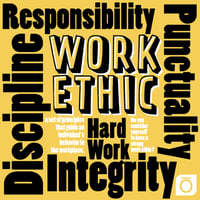Most people strive for a successful work/life balance. But what does that mean and how do you...
Networking: The Most Overlooked Skill For Professional Development
Americans revere the lore surrounding the “Self-made” successful individual. But the truth is, success cannot be created in a vacuum. Look deeper into the story of the most successful business people in the world today, and you will see that much of their success can be attributed to the networks they have built.
What is Networking?
Networking sounds formal and business-like. But at its core, it’s just making connections with other human beings. Your network is simply the collection of people you have relationships with, and is connected to the people they have relationships with.
The better you are at establishing and maintaining connections with others, the larger your network will be. And this is important because, according to a recent HubSpot survey, 85% of jobs are filled by networking. This isn’t really surprising. People would rather work with someone they know than with someone who is a complete wildcard.
The True Power Behind Successful Networks: Giving Value
The easiest way to build networks also happens to give your networks more power: simply give value to others. Gary Vaynerchuk, founder of VaynerMedia and a leader in the discipline of social marketing, approaches every relationship he makes on the premise that the other person should get at least 51% of the value in the relationship.
The reason for giving value without asking anything immediately in return, or purposely creating more value than you’re receiving in return is two-fold. First, it immediately puts the other person at ease by showing them you WANT to give them more than you are asking for in return.
Second, there is an aspect of human psychology called “reciprocity,” which simply means that when someone gives you something, you subconsciously want to reciprocate as a way of showing your appreciation. And reciprocity has a cumulative impact: it builds over time.
If you regularly give value to the people in your network, you’re making deposits into their “reciprocity bank.” If you keep these banks consistently full, when when the time comes that you need someone, whether it’s a new job or a business partnership or even something simple as help when you need to move, the people in your network will have been looking for a way to say thank you for everything you’ve done for them.
Three Important Kinds of Networks.
Your family and friends are certainly networks, but in this post we’re going to focus on work-related networks. Here are three you should be focusing on.
Your Team
These are the colleagues you work with. Together you are working toward common goals, and each teammate is vital to your success. Hopefully, your team is already a network of solid relationships. But if you want to take it to the next level, try giving more than you ask in return. Find out the things no one else wants to do, and volunteer to do those. When you take the 49% and give them the 51% in the short-term in specific tasks, it actually puts you in a stronger position in the long-term… because even though you’ve never said it, they feel like they “owe you one,” dozens or hundreds of times over.
Mentors
Mentors are important to almost any future success. But how do you give 51% to a mentor, when they have all of the experience. What do you have that they could possibly want? Two things: respect and effort. When your mentor gives you advice, thank them. Then, put that advice to work… and if it pays off, make sure everyone knows where your ideas came from. When you accomplish something, that accomplishment is yours. No one can take it away from you. So it costs you nothing to say “you know, I couldn’t have done it if Jerry hadn’t shared his experience and expertise with me.” In this way, you’re not only giving your mentor YOUR respect, you’re earning him the respect of others as well.
Industry
You might love your job, and that’s great. But the simple reality today is that the average person will work for six different companies in his or her lifetime. So it only makes sense to extend your professional network beyond the walls of your current employer. Join industry and trade associations, and attend functions. Maybe even volunteer to help. Figure out if there are places where people in your industry hang out after work and visit. Attend conferences and take classes.
Put yourself in places where you’re likely to run into other people in your industry… and approach them with that same 49/51 mentality. Because you don’t always know in advance when you might need to find another job.
How Do I Network With Others?
In the age of social media, it is easy to connect with hundreds or thousands of others. But it’s also to feel connected, when you really only have a superficial passing knowledge of one another. If there’s no relationship there, then you really don’t have a network.
But even on sites like LinkedIn you can add value to your connections by offering or sharing meaningful information. Even if you’re just sharing interesting and informative articles, you start building yourself as a valuable source of information.
And you can help others connect. If someone in your network is looking for something, take a few minutes and connect them with anyone you know who might be able to help.
In the real world, networking starts with simply introducing yourself. That part is easy. The mistake many make is trying to make sure others know who you are, what you do, what you want.
But here’s the real trick to networking: if the other person knows you are interested in them, they will be more interested in you. In his time-tested book “How to Win Friends and Influence People,” Dale Cargnegie offers six principles for making people like you:
- Become genuinely interested in other people.
- Smile.
- Remember that a person’s name is (to them) the sweetest sound in any language.
- Be a good listener; encourage others to talk about themselves.
- Talk in terms of the other person’s interests.
- Make the other person feel important– and do it sincerely.
That last word is key. Networking is a long game. If you’re not approaching that 49%-51% relationship sincerely, you simply aren’t going to be able to sustain it. And not building a relationship at all is worlds better than building a relationship filled with resentment.
Networking takes time.
You’re not going to go to a conference and build a network of 2,000 people chomping at the bit to help you in a single weekend. But you can start right now by changing the way you interact with the people around you. You can turn your co-workers, your mentors and people you already know in the industry into central hubs of your new networks. Then, once you’ve built up some value for them, you can ask: hey, do you know anyone who [whatever], and ask if they can introduce you.
On social media, you can start interacting in various groups, and simply add value. “Hey, here’s a cool article I just read.” Or I just learned that you could [insert clever, relevant trick or tip].” When people announce things, show them support, whether it’s congratulations or condolences.
Overall, in networking, the core principle to successful networking in any area is to proactively be a good human to other humans. Seek out ways to bring value to others, and you can’t help but go far.


